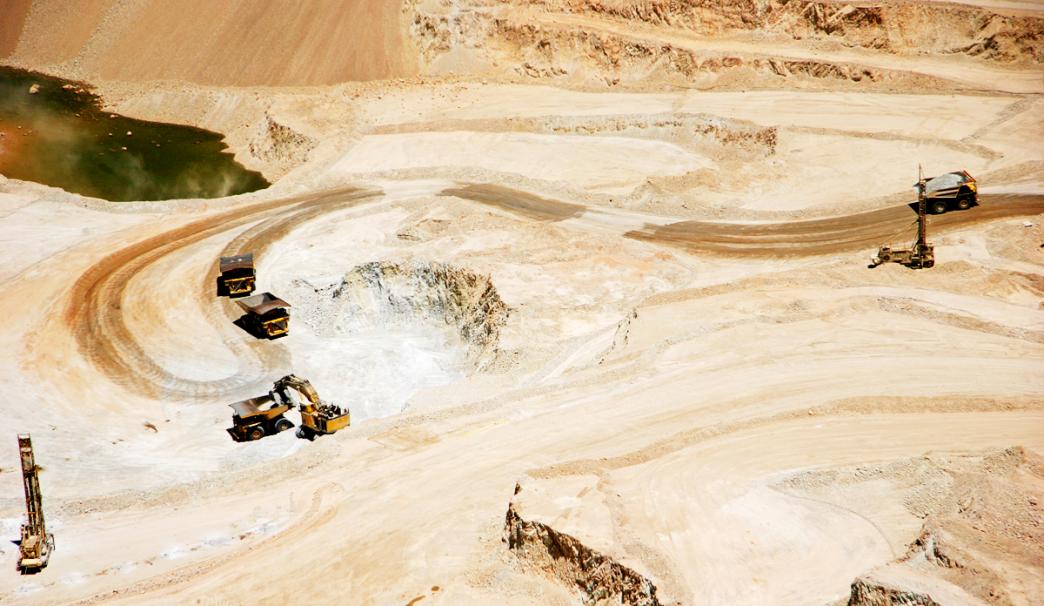
Quitting the Race to the Bottom in Extractive Industries
NRGI’s Latin America director Juan Luis Dammert spoke on 25 May at the United Nations Global Roundtable on Extractive Industries as an Engine for Sustainable Development, hosted by UN Secretary-General António Guterres. Dammert spoke on the subject "How should developing countries, including of Latin America and the Caribbean, approach industrial, fiscal and regulatory policies to avoid the race to bottom in attracting investments and ensure that the extractives sector contributes to their sustainable development?" These are his remarks:
It is an honor to be here and be able to share some reflections on the challenges of the extractive sector from a civil society perspective.
In my view, the crucial question is: how are resource-rich countries going to ride the wave of economic recovery after the crisis generated by the coronavirus pandemic?
Extraction is certainly going to play a central role. We now see enormous efforts from countries to attract investments, to increase production and to get as much profit as they can from their natural resources.
One of the risks of this strategy is to promote extraction while reducing social, environmental and governance standards and giving fiscal incentives that do not benefit citizens.
Because of the urgency for an economic recovery, the risk of a “race to the bottom” in attracting investments is higher.
In Latin America, for example, we see an ongoing narrative, mostly coming from some players from the private sector, that equates environmental and social standards with “obstacles” to development.
In this context, what can countries do to avoid the race to bottom in attracting investments and ensure that the extractives sector contributes to their sustainable development?
The extractive sector has a great potential to contribute to sustainable development.
Countries should try to use the current crisis as an opportunity to increase the benefits they receive from extraction, and racing to the bottom is not the path for increased benefits.
A basic recommendation is that countries do not engage in lowering of fiscal conditions and environmental, social and governance standards, including transparency, to attract investments.
When it comes to taxation, countries must find the balance between getting as much rent as possible while not driving away investments with high taxes.
Countries should also develop policies around economic linkages. Countries should not aim to engage in activities in which they are in no position to compete, but at the same time, they should not leave everything for the market to decide.
Without planning or policies, resource-rich countries will only be suppliers of raw materials and will not add any value to the resources they have. Policies promoting backward and forward linkages are very important.
Finally, the current crisis is an opportunity to think differently about resource extraction. This means that countries should avoid inertia and past shortcomings in resource governance, and should also avoid dependency on resource extraction. Extraction must take place with respect to the energy transition and the climate agenda.
In sum, countries should try to find a balance in fiscal policy, strengthen institutions to uphold environmental and social standards, and develop policies to promote economic linkages with extraction. In this way extraction can contribute to sustainable development.
Juan Luis Dammert is the Latin America director at the Natural Resource Governance Institute (NRGI).
Photo: Matt Hintsa for Flickr.
It is an honor to be here and be able to share some reflections on the challenges of the extractive sector from a civil society perspective.
In my view, the crucial question is: how are resource-rich countries going to ride the wave of economic recovery after the crisis generated by the coronavirus pandemic?
Extraction is certainly going to play a central role. We now see enormous efforts from countries to attract investments, to increase production and to get as much profit as they can from their natural resources.
One of the risks of this strategy is to promote extraction while reducing social, environmental and governance standards and giving fiscal incentives that do not benefit citizens.
Because of the urgency for an economic recovery, the risk of a “race to the bottom” in attracting investments is higher.
In Latin America, for example, we see an ongoing narrative, mostly coming from some players from the private sector, that equates environmental and social standards with “obstacles” to development.
In this context, what can countries do to avoid the race to bottom in attracting investments and ensure that the extractives sector contributes to their sustainable development?
The extractive sector has a great potential to contribute to sustainable development.
Countries should try to use the current crisis as an opportunity to increase the benefits they receive from extraction, and racing to the bottom is not the path for increased benefits.
A basic recommendation is that countries do not engage in lowering of fiscal conditions and environmental, social and governance standards, including transparency, to attract investments.
When it comes to taxation, countries must find the balance between getting as much rent as possible while not driving away investments with high taxes.
Countries should also develop policies around economic linkages. Countries should not aim to engage in activities in which they are in no position to compete, but at the same time, they should not leave everything for the market to decide.
Without planning or policies, resource-rich countries will only be suppliers of raw materials and will not add any value to the resources they have. Policies promoting backward and forward linkages are very important.
Finally, the current crisis is an opportunity to think differently about resource extraction. This means that countries should avoid inertia and past shortcomings in resource governance, and should also avoid dependency on resource extraction. Extraction must take place with respect to the energy transition and the climate agenda.
In sum, countries should try to find a balance in fiscal policy, strengthen institutions to uphold environmental and social standards, and develop policies to promote economic linkages with extraction. In this way extraction can contribute to sustainable development.
Juan Luis Dammert is the Latin America director at the Natural Resource Governance Institute (NRGI).
Photo: Matt Hintsa for Flickr.
Authors

Juan Luis Dammert
Latin America Director
